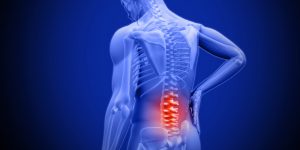What do ecosystems, icebergs and lower back pain all have in common
Sports Massage whilst training for an endurance event
January 7, 2019What is a disc?
January 13, 2019Life is complex, pain is complex. Finding the right balance is a constant juggling act. If you cannot juggle well, or are juggling beyond your capacity, using too many balls, going too fast, or trying to juggle whilst standing on your head, at some point those balls are going to drop.
Take any natural environment; we can all recognise the way in which the many different inhabitants shape the ecosystem in which they coexist. We can view an ecosystem as macro as the entire planet, or as micro as the cells in our body.. Whether we are viewing the macro or micro, everything within that ecosystem is relating to each other in some way. As doctors, when we look at someone, we have to think of that someone as a person with their own individual, micro ecosystem, but also as part of a much wider, macro ecosystem.
The natural world encompasses this entirely symbiotic interrelatedness within everything. Everything effects everything else. This is cause and effect, ying and yang. Our body should be able to absorb and cope with the unpredictability of all areas of life and still thrive. We need an earthquake architecture inside of us to ensure vitality.
Regarding pain, there are often many diverse and complicated causes of any given painful presentation. Linking a painful lower back, or any other pain, to just simple biomechanics, a stiff joint, some tight muscles or strained ligaments, without taking into account the wider ecosystem and the interrelatedness of everything, may prove to be a mistake.
The complexities in which the human body operates is still very much an untold story. We must be careful not to believe that we always know what is going on. We are making new discoveries all the time, and whilst there is much that we know, there is much more that we do not know. What we do know however, is that when someone presents with pain from some simple innocuous task that they have done a thousand times before but on this occasion they badly hurt their back, that this simple task in itself could not be the absolute cause of the pain, but the thousands of times previously that led to that one singular point.
A simple search through the World Health Organisation website for lower back pain will show studies often citing the same causes for lower back pain; work dissatisfaction, boredom, a generous compensation system in countries that have welfare support, socioeconomic issues exclusive of welfare, and psychosocial issues just to name a few. This demonstrates that if there cannot be one single answer to something like lower back pain, then we must look at these issues with a more holistic, macro orientated lens.
As an osteopath, we are extensively trained to work with patients on a number of different levels in regards to any painful or physically dysfunctional presentation. When you, as a patient, present with an issue such as lower back pain, it is important to identify all the potential triggering factors for your pain. The lower back pain you are experiencing may be just the tip of the iceberg that we can all see and that you can feel, but the vast majority of that iceberg is under the surface and doesn’t always show its true identity.
 The first question we must ask is: What is the make up of your ecosystem? Through a better understanding of your ecosystem we can then ascertain what are the more likely primary factors, what are the secondary and tertiary factors that may contribute less, yet still contribute. Stress, relationships, satisfaction or dissatisfaction with life or work, nutrition, sleep, digestive health, reproductive health, your overall vitality, the vitality of your organs, how well you move, how often you move, how you choose to move or don’t move, the list goes on.
The first question we must ask is: What is the make up of your ecosystem? Through a better understanding of your ecosystem we can then ascertain what are the more likely primary factors, what are the secondary and tertiary factors that may contribute less, yet still contribute. Stress, relationships, satisfaction or dissatisfaction with life or work, nutrition, sleep, digestive health, reproductive health, your overall vitality, the vitality of your organs, how well you move, how often you move, how you choose to move or don’t move, the list goes on.
For any issue, in particular the more longer standing problems, there is no quick fix. You have to choose whether you want to treat the tip of the iceberg or whether you have the capacity and willingness to look what’s under the surface of the water. You want your body to be able to withstand the earthquakes that life brings, develop a strong internal earthquake architecture, and be able to cope with the inevitability of stresses that are always only around the corner.
Kris R.



